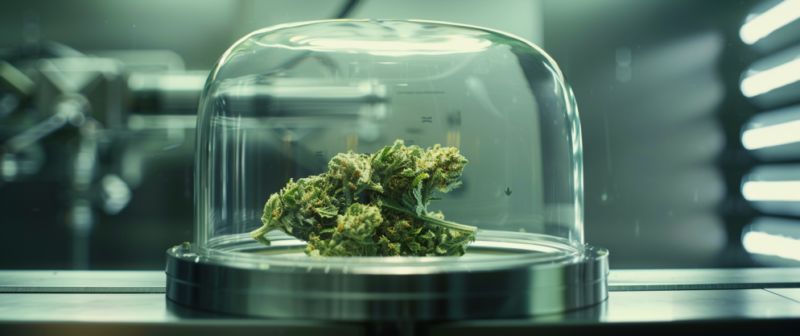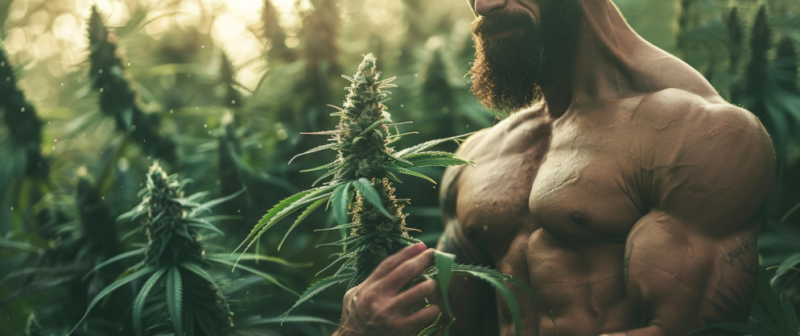Are Delta 8 and Hemp the Same?
Are you one of the few who are wondering, “are Delta 8 and hemp the same?”
While both originate from the cannabis plant, they are distinct in their properties and uses. Delta 8 is a specific cannabinoid known for its mild psychoactive effects, whereas hemp is a broader term for cannabis plants with low THC content.
In this article, we will clarify the differences and similarities between Delta 8 and hemp to help you understand their unique characteristics.
Are Delta 8 and Hemp the Same?
When discussing whether Delta 8 and hemp are the same, it is essential to understand that while both Delta 8 and hemp are part of the broader cannabinoid family, they differ significantly in terms of their chemical composition, legal status, and effects on the consumer.
Hemp, legalized under the Agriculture Improvement Act of 2018, is primarily known for its wide range of uses, whereas Delta 8, a specific cannabinoid, is sought after for its unique effects.
What is Delta 8?
Delta 8, also known as Delta 8 tetrahydrocannabinol, is a chemical compound found in the cannabis plant, and it is one of the many cannabinoids that interact with the body’s endocannabinoid system.
What are the Sources of Delta 8?
Delta 8 can be sourced both naturally from hemp plants and through chemical synthesis in a laboratory setting.
In terms of natural extraction from hemp, the process involves isolating Delta 8 from the plant’s cannabinoids through methods like distillation or chromatography. This method is often favored by those looking for a more organic and plant-based form of Delta 8.
On the other hand, chemical synthesis in a lab offers a controlled environment where the compound can be created in a more precise manner. This method may involve the use of certain chemicals and may not be considered as ‘natural’ as the hemp extraction process.
What are the Effects of Delta 8?
Unlike delta 9 THC, Delta 8 does not produce the same intense euphoria or high when interacting with a cannabinoid receptor, making it a more manageable medication option for those seeking relief without feeling overwhelmed. The calming effects of Delta 8 are often described as more subtle and uplifting, providing a sense of relaxation without clouding the mind.
Delta 8 has also shown promising results in alleviating various types of discomfort, from chronic conditions to acute injuries. Many users report a decrease in discomfort levels and an increase in mobility after consuming Delta 8 products.
How to Use Delta 8
Delta 8 THC is becoming a popular choice for those seeking the benefits of cannabinoids with a milder psychoactive effect. Understanding how to use Delta 8 effectively can enhance your experience and ensure you achieve the desired results.
Here are the most common methods to consume Delta 8:
- Vaping: Vaping Delta 8 involves using a vape pen or e-cigarette. This method offers fast absorption through the lungs, leading to quick onset of effects. It’s ideal for those looking for immediate relief.
- Edibles: Delta 8 edibles, such as gummies or chocolates, provide a tasty and discreet way to consume the cannabinoid. The effects take longer to kick in (30 minutes to 2 hours) but tend to last longer.
- Tinctures: Delta 8 tinctures are liquid extracts that can be taken sublingually (under the tongue) or added to food and drinks. This method allows for precise dosing and offers effects within 15 to 45 minutes.
- Capsules: Delta 8 capsules provide a convenient and consistent way to consume Delta 8. They are easy to dose and swallow, with effects that typically begin within 30 minutes to an hour and can last for several hours.
- Topicals: Delta 8-infused creams, balms, and lotions can be applied directly to the skin. This method targets localized areas, providing relief from discomfort or irritation without producing psychoactive effects.
What is Hemp?
Hemp is a variety of the Cannabis sativa plant species that is grown specifically for industrial uses and contains low levels of tetrahydrocannabinol (THC), making it distinct from other cannabis plants.
How is Hemp Different from Marijuana?
The primary difference between hemp and marijuana lies in their tetrahydrocannabinol (THC) content, with hemp containing 0.3% or less, which significantly impacts their legal status.
While both hemp and marijuana are members of the cannabis plant family, their THC levels set them apart. Hemp, with its minute THC content, is typically cultivated for its industrial uses such as textiles, paper, and food products.
On the other hand, marijuana contains much higher levels of THC, which is responsible for its psychoactive effects. This distinction in THC concentration translates into varying legal implications; hemp is federally legal under the Farm Bill, while marijuana remains classified as a Schedule I substance by the DEA.
What are the Uses of Hemp?
Hemp is a versatile plant used in various industries, including agriculture, medicine, cosmetics, and more, with its extracts being highly valued for their beneficial properties.
Within agriculture, hemp is cultivated for its fibers, seeds, and oils, serving as a sustainable alternative to traditional crops.
In medicine, the plant’s extracts are utilized for their potential health benefits, such as managing mental health and improving overall well-being.
In the cosmetics industry, hemp-derived ingredients are prized for their moisturizing and nourishing properties, found in products like skincare creams and hair therapies.
Hemp has applications in textiles, biofuels, and even construction materials, showcasing its versatility across various sectors.
How to Use Hemp
Hemp is a versatile plant used for various purposes, from wellness products to industrial applications. Understanding how to use hemp effectively can help you maximize its benefits.
Here are the most common methods to incorporate hemp into your routine:
- Hemp Oil: Hemp oil, often derived from the seeds, is rich in essential fatty acids and can be used in cooking or as a dietary supplement. It promotes heart health and supports overall wellness.
- Hemp Seeds: Hemp seeds are highly nutritious and can be added to smoothies, salads, and baked goods. They are an excellent source of protein, fiber, and essential minerals.
- CBD Products: CBD (cannabidiol) is a non-psychoactive compound found in hemp. CBD oils, tinctures, and edibles are popular for their potential to reduce stress, alleviate discomfort, and improve sleep quality.
- Hemp Fibers: Hemp fibers are used to make a variety of products, including textiles, paper, and biodegradable plastics. They are known for their durability and environmental benefits.
- Topicals: Hemp-infused creams, balms, and lotions can be applied directly to the skin. These products are used for their potential antibacterial and moisturizing properties, aiding in skin health and discomfort relief.
What are the Similarities Between Delta 8 and Hemp?
Both Delta 8 and hemp are derived from the cannabis plant and are known for their therapeutic properties, making them popular choices for various health and wellness applications.
Both are Derived from the Cannabis Plant
Delta 8 and hemp both originate from the cannabis plant, which produces a variety of cannabinoids that can be used for different purposes.
One of the key points of interest lies in the distinction between Delta 8 and hemp based on their chemical composition. While both are derived from cannabis, Delta 8 is a specific cannabinoid extracted in small amounts from the plant’s flowers and buds. On the other hand, hemp is known for its high levels of CBD, a non-intoxicating compound with a range of potential health benefits.
The intricate relationship between Delta 8 and hemp showcases the remarkable complexity of cannabis and its ability to produce a multitude of cannabinoids with unique properties. Through meticulous extraction processes, these cannabinoids can be isolated and utilized for various therapeutic, recreational, and industrial purposes.
Both Have Therapeutic Properties
Both Delta 8 and hemp exhibit therapeutic properties that can benefit health and overall wellness.
Delta 8, a cannabinoid found in the cannabis plant, has garnered attention as it interacts with the body’s endocannabinoid system to help alleviate chronic disease and provide brain relaxation.
Hemp, on the other hand, is rich in compounds like CBD that have been linked to reducing stress. Its calming properties make it a popular choice for individuals looking for natural remedies for therapy.
What are the Differences Between Delta 8 and Hemp?
Despite their similarities, Delta 8 and hemp differ in several key aspects, including their chemical composition, psychoactive effects, and legal status, which influence how they are used and perceived by the public.
Chemical Composition
The chemical composition of Delta 8 and hemp varies significantly, with Delta 8 being an isomer of Delta-9-THC, while hemp contains a broader range of cannabinoids and other compounds.
Delta 8 and Delta-9-THC share a similar molecular structure, but the placement of a double bond in Delta 8 differentiates it from Delta-9-THC, resulting in distinct properties. This variation causes Delta 8 to possess milder psychoactive effects compared to Delta-9-THC, making it more suitable for users looking for a more balanced experience.
In contrast, hemp is primarily valued for its high concentration of CBD (cannabidiol), a non-intoxicating cannabinoid that offers potential health benefits without causing euphoria. Hemp contains other valuable compounds such as terpenes and flavonoids, which contribute to its therapeutic properties.
Psychoactive Effects
Delta 8 has mild psychoactive effects that can alter the user’s mental state and consciousness similar to alcohol, unlike hemp, which typically does not produce such effects due to its low THC content.
When consuming Delta 8, individuals may experience a sense of euphoria, relaxation, and a slight alteration in perception. The intensity of these effects is generally milder compared to Delta 9 THC, providing a more subtle high. Users often describe feeling clear-headed and focused while still enjoying a gentle buzz.
On the other hand, hemp, containing minimal THC levels, is commonly used for its non-intoxicating properties, offering a sense of calm and well-being without affecting one’s mental clarity or cognitive functions.
Legal Status
The legal status of Delta 8 and hemp varies, with hemp being federally legalized under the Agriculture Improvement Act of 2018, while Delta 8’s legality is more complex and subject to state regulations.
While hemp is considered legal on a federal level, Delta 8 falls under a legal gray area due to its psychoactive properties. The Controlled Substances Act classifies cannabis as a Schedule I substance, which includes Delta 8 THC.
Some states have taken steps to allow the production and sale of Delta 8 within their jurisdictions. It’s crucial for consumers to be aware of the specific laws and regulations in their state regarding Delta 8 products to avoid any legal issues.
Is Delta 8 Legal?
The legality of Delta 8 is a gray area, as it is not explicitly listed under the Controlled Substances Act, but its production and sale are governed by a patchwork of state regulations.
With the confusion on its legal status, businesses operating in the Delta 8 industry face challenges handling the varying state laws and federal regulations. The Controlled Substances Act classifies cannabis as a Schedule I substance, but Delta 8, derived from hemp, falls under the Agriculture Improvement Act of 2018, which legalizes hemp and its derivatives with less than 0.3% delta-9 THC.
This discrepancy between federal and state laws creates a complex environment for producers, retailers, and consumers alike. Some states have accepted Delta 8, while others have taken a stricter stance, leading to a lack of uniformity in regulations across the country.
Is Hemp Legal?
Hemp is legal in the United States under the Agriculture Improvement Act of 2018, which removed it from the list of controlled substances and placed its regulation under the Food and Drug Administration.
The Agriculture Improvement Act of 2018, also known as the Farm Bill, was a significant turning point for hemp in the United States. This legislation differentiated hemp from marijuana, recognizing it as an agricultural commodity rather than a controlled substance.
Under this law, hemp production, cultivation, and distribution are regulated by the USDA. The Food and Drug Administration (FDA) plays a crucial role in overseeing hemp-derived products. The FDA is responsible for regulating the manufacturing, labeling, and marketing of CBD and other hemp products, ensuring they comply with relevant laws and standards.
Final Thoughts – Are Delta 8 and Hemp the Same
Understanding the distinctions between Delta 8 and hemp is crucial for consumers looking to make informed choices about their health and wellness, especially considering the varying legal statuses and potential benefits of each.
Delta 8 and hemp come from the same cannabis plant, but they have different chemical structures that lead to varying effects. While Delta 8 is a specific form of THC known for its mild psychoactive properties, hemp contains minimal THC levels and is primarily valued for its high CBD content.
Consumer awareness is key when handling the legal landscape surrounding these products, as the legal status of Delta 8 can vary by state, whereas hemp-derived products are federally legal.
Whether individuals seek relaxation, discomfort relief, or overall wellness, understanding and choosing between Delta 8 and hemp products can greatly impact their experience and outcomes.
FAQs
1. Is Delta 8 the same as CBD?
No, Delta 8 and CBD are different cannabinoids with distinct effects and legal statuses.
While both Delta 8 and CBD are derived from the cannabis plant, they interact with the body in unique ways. Delta 8 has a psychoactive effect, similar to traditional THC, but with a milder high, making it appealing to those seeking a more subtle experience.
On the other hand, CBD is non-psychoactive, offering therapeutic benefits without the euphoric sensation. In terms of legality, the status of Delta 8 varies across different regions, while CBD is widely accepted and legal in many places due to its minimal THC content.
Both cannabinoids play vital roles within the broader category of cannabinoids, showcasing the diverse potential of cannabis-derived compounds.
2. Can I get high from using hemp products?
Hemp products generally do not produce a high because they contain 0.3% or less THC, which is not enough to cause significant psychoactive effects.
This low level of THC in hemp is a crucial factor that distinguishes it from marijuana, which typically contains much higher amounts of THC, leading to its intoxicating effects. The legal definition of hemp further solidifies this distinction, with regulatory standards specifying that hemp must have THC levels below 0.3% to be considered legal.
This threshold ensures that hemp products can be safely consumed without the risk of inducing a high, substance abuse, addiction, or any psychoactive responses, making them popular choices for various applications ranging from textiles to skincare.
3. What are the potential benefits of Delta 8?
Delta 8 has potential benefits that include stress reduction, managing discomfort, and overall health and wellness improvements.
Many users report feeling a sense of calm and relaxation after consuming Delta 8, making it a popular choice for those seeking relief from everyday stressors. Research suggests that Delta 8 may have potential anti-stress properties, which could be beneficial for individuals dealing with stress disorders.
In terms of managing discomfort, Delta 8 has shown promise in alleviating various types of discomfort, including chronic discomfort, migraines, and irritation. This is attributed to its interaction with the body’s endocannabinoid system, which plays a crucial role in regulating discomfort perception.
In terms of overall wellness, Delta 8 is believed to possess antioxidant and neuroprotective properties, potentially aiding in maintaining cognitive function and overall health. While more research is needed to fully understand the extent of its benefits, many users swear by the positive effects they experience from incorporating Delta 8 into their wellness routine.
4. Can I fail a drug test from using Delta 8?
Yes, using Delta 8 can result in a failed drug test because it is a form of THC, which standard drug tests typically screen for.
Delta 8 is a cannabinoid derived from the hemp plant that shares a similar chemical structure to Delta 9 THC, the psychoactive compound in marijuana. While Delta 8 is legal due to the 2018 Farm Bill, many drug tests cannot distinguish between the two forms of THC.
This lack of differentiation can lead to a positive result on a drug test, causing confusion and potential consequences for individuals who unknowingly consume Delta 8 products.
For consumers, this creates a dilemma as they may unintentionally face repercussions in professional or legal settings. To navigate this issue, individuals should exercise caution when trying Delta 8 products, especially if they are subject to drug testing.
It’s essential to be informed about the THC content in products and opt for reputable brands that provide lab-tested, transparent information about their ingredients.


